Our series, “We are the night” presents artists, promoters, production managers, label owners and others who are bringing the music world of the Czech Republic forward, from the past to the present and the present to the future. This week we present an interview with Jan Faltys, from the team behind Prague-Holesovice’s fabled island venue, Fuchs2. Photo credit: Magdalena Medkova.
The stage, the sound, the audience… all of them come together within one space, all chosen at the instant, under the light. But so often, all of them are coordinated to pivot around one central element: The venue.
After the last years of economic struggles due to the uncertainty of a worldwide pandemic, I wanted to know about one of the most vibrant places for music in the capital. Located on an island in the river, Fuchs2 is one of Prague’s key trend-setting venues, articulating a major part of the Prague scene. I met the co-owner/co-curator Jan Faltys, who explained to me the values of this space, and the creativity linked to it.
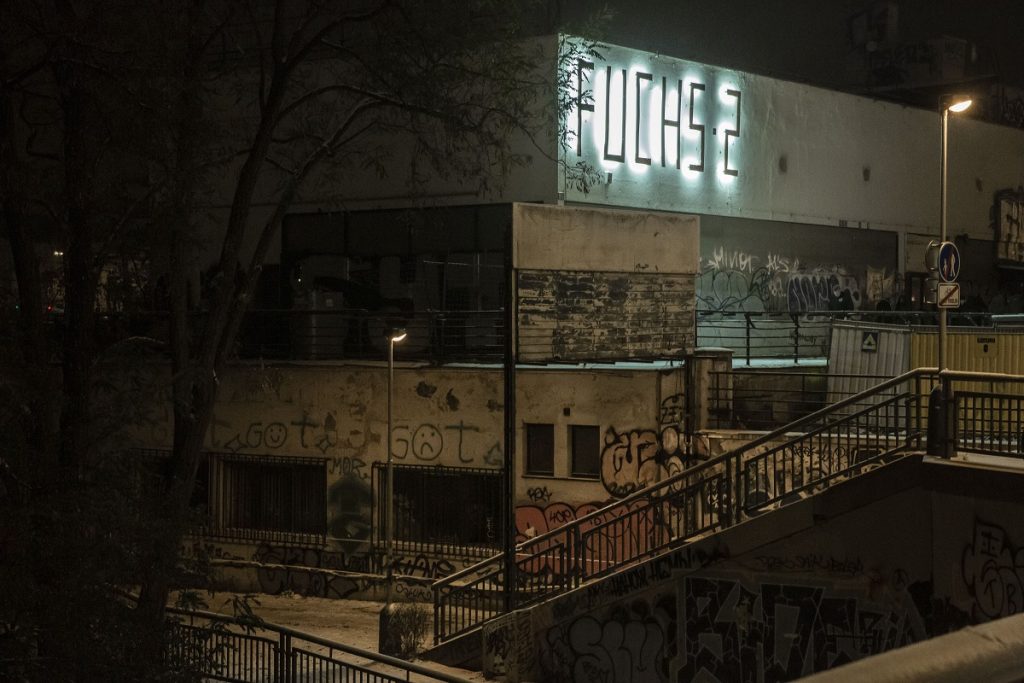
What is your first memory with music?
My grandpa playing some old country tunes at our summer house.
What is your musical background? Did you play any instrument or get any musical education?
No, I am only a passive enthusiast, unfortunately. My mom told me that when I was in kindergarten, there was an open call for a local choir and I was one of the few kids who wasn’t selected. I guess that says a lot about my singing, and unfortunately this still prevails!
What music were you listening to as a teen, and how has it evolved?
I was influenced by my mother’s partner Martin, who loves classic rock and blues. In my early teens I was listening to anything from Led Zeppelin to Jimi Hendrix to Bo Diddley and B.B. King. With puberty I inclined to punk and reggae, and only in my 20s did I start to listen to hiphop and later on electronic music. Now, I listen to pretty much a mix of the genres mentioned above.
How did you start to get involved in music production?
Ten years ago, we started Containall. It was a cafe/bar with a diverse program and DJs were an integral part of it. A couple of years later, we started Stalin and that’s when it really took off.
Tell me about your personal history with Fuchs2. How did you get the idea and how did you start it up?
Fuchs2 used to be an upscale cafe built by Josef Fuchs in the 1930s, but its heyday is connected to ice hockey; Czechoslovakia won several world championships there and it became almost a sacred place to hockey fans. Its music history started even before the Velvet Revolution – one of the first discos in Prague was there, and it continued after the revolution. The disco had several names: Bonton, Kamikaze etc., but its most famous incarnation was known as Face2Face. And that’s also why we decided to name it Fuchs2 – we combined the past (name of the architect) with (recent) present (Face2Face).
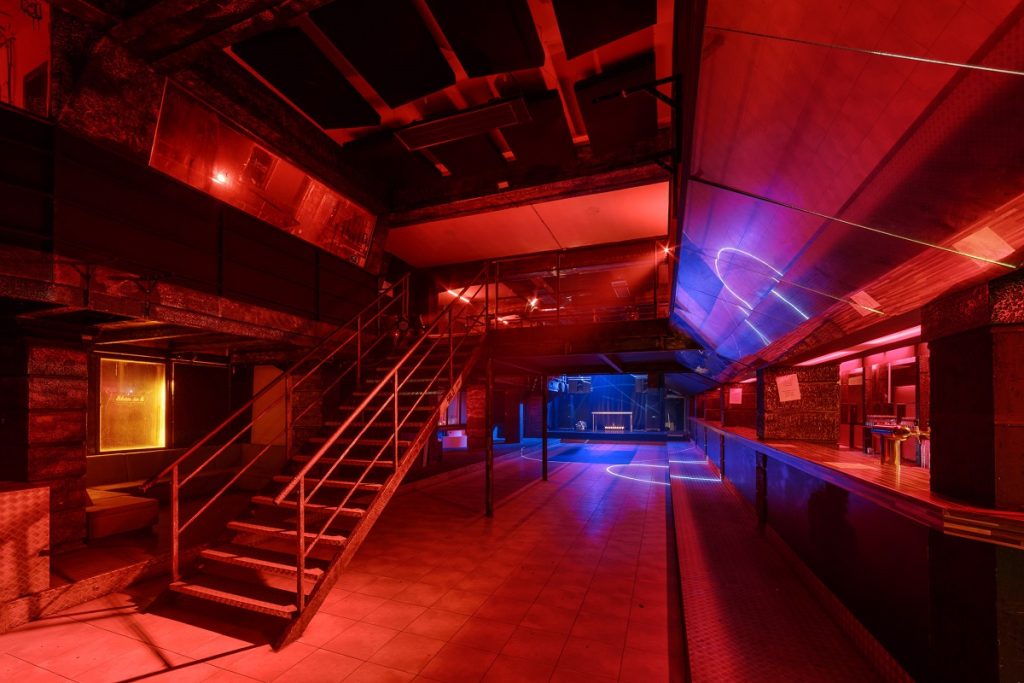
It all started as a pop-up of four collectives which operate mainly in the summer season – Přístav 18600, Containall/Stalin, Altenburg and Vila Štvanice. We wanted to do something together during winter and in collaboration with the municipality we were able to secure this building. We opened in December 2018 after approximately six months of preparations. And after those six months we realized that we would like to continue in our efforts.
What were the main difficulties you encountered with the Fuchs2 project?
The main and prevailing problem is the condition of the building. There is always something that doesn’t work, and when you dig into this rabbit hole you discover more and more stuff that needs to be fixed. But we are persistent, we tune and polish it step by step.
What music scene do you mainly cater for?
We have a duo of bookers – Arnii Ata for electronic music and Karel Burianek for live music. Arnii is very forward thinking in terms of music dramaturgy, and it shows in his bookings. He promotes musical diversity and doesn’t like to be tied down by genres. I think this shows well if you look at our recent bookings. For the opening weekender we had Hodge, Dangermami and Asquith, a week later Schacke, Sugar and Boyd Schidt. In early October you have Schwefelgelb, and later on you will get LSDXOXO, a massive star DJ/producer combining pop, house, hardcore, electro and techno.
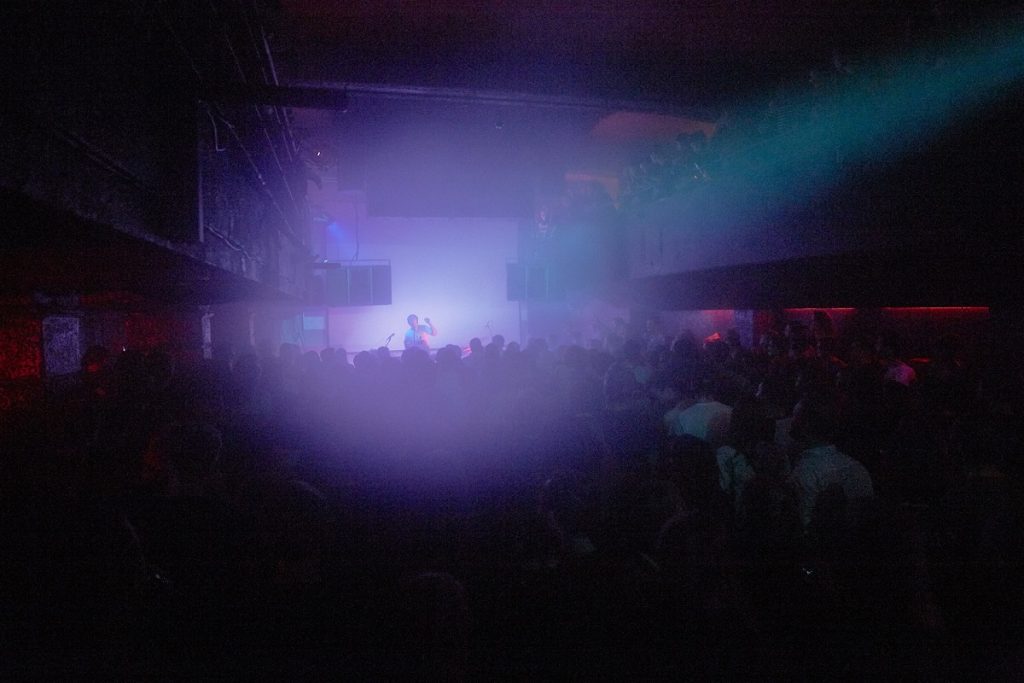
Karel focuses mainly on alternative Czech live bands, which is great because we very much enjoy the diversity of dramaturgy. Some people frown upon it and call us “hard to read” and “musically confused” but I am pretty happy about it!
How do you see the evolution of the electronic music scene in Praha?
Well, if you take a step back and look at the “bigger picture” it is pretty cool what happened in the last eight or so years, no? I don’t want to say that there was nothing before, but I believe it is safe to say that there was a certain, maybe a whole generation gap? Drum’n’Bass always had a strong following in Prague (or the whole Czech Republic to be precise) but with techno it was a different story. This “electronic music renaissance” we see now is built upon the hard work of local DJs and promoters. You have three alternative clubs with regular music nights and a couple of collectives doing warehouse parties and cool summer gigs.
How did you manage the COVID period?
We closed and reduced our activity to a minimum, but we keep the core people on part-time contracts to keep the continuity. It also gave us time for some improvements we wanted to make in the club. For example, the smaller stage SALO was renovated and everybody loves it now.
I see Fuchs2 got involved in supporting Ukraine during the ongoing conflict. Could you describe how you manifest that support?
We organized one fundraiser concert and then we gave part of our monthly revenue to the Ukraine embassy. Also, one of the many refugees, Nastya Muravyova, moved to Prague and became one of our resident DJs. Our continuous support for Ukraine is manifested by the fact that we book DJs from the Ukraine. It is not much but we try to contribute with our share.
There are increasing issues with drug abuse (GHB) and needle spiking all across clubs in Europe. How do you try to prevent such issues?
Yes, GHB is a problem but luckily so far we haven’t managed to get to the same level as western Europe. We work with the Progressive NGO and their party harm reduction program, and educate our staff including security about possible effects of those drugs and how to spot them.
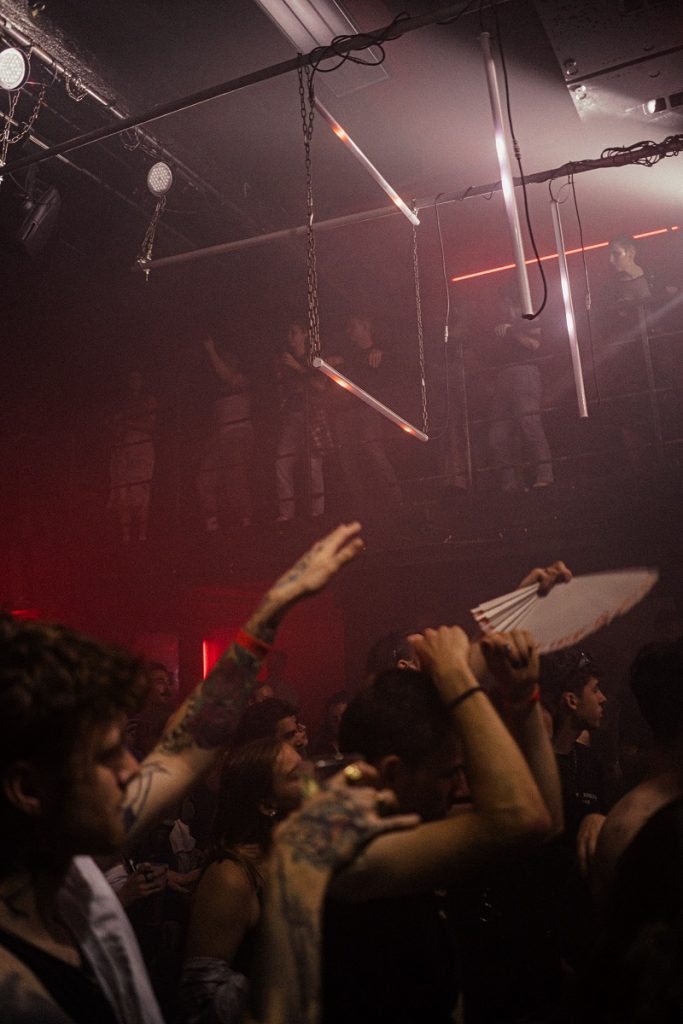
What would be the main messages you promote in Fuchs2?
Inclusivity, musical diversity, openness, zero tolerance to intolerant people.
What is the link between Fuchs2 and Bike Jesus?
Bike Jesus is a semi-autonomous part of Fuchs2, as it’s run by Martin Kontra, who is one of the partners in Fuchs2. Sometimes we cooperate on bigger events because we think that the best experience in Fuchs2 is when you can explore the whole house.
What are the future projects for Fuchs2?
Our (not so secret) plan, or rather wishful thinking, is to open the roof to the general public. That is something we have been dreaming of from day 1, but it is technically and financially quite problematic so we are still dreaming! But we were able to set up a community centre for youth where they can get educated about music (DJ courses or playing instruments) which is something we are really proud of!
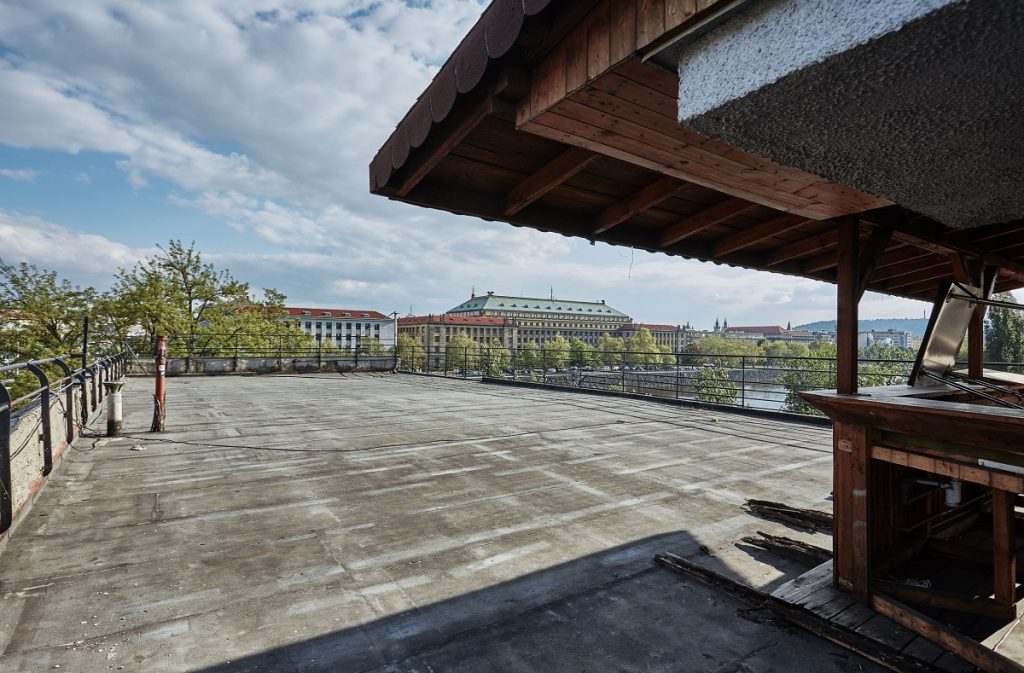
How do you see the current Czech music scene?
I believe that boundaries between genres are slowly disappearing and people are less narrow minded, which is great. When I was younger you were either a hiphop fan, metal head, punk, or something else that was defining you. I am pretty sure it is still like this, but much less than before. Music is one, no? And then there is Kapitan Demo, that is shit no matter what!
Name 3 songs / artists you want to share with the audience?







